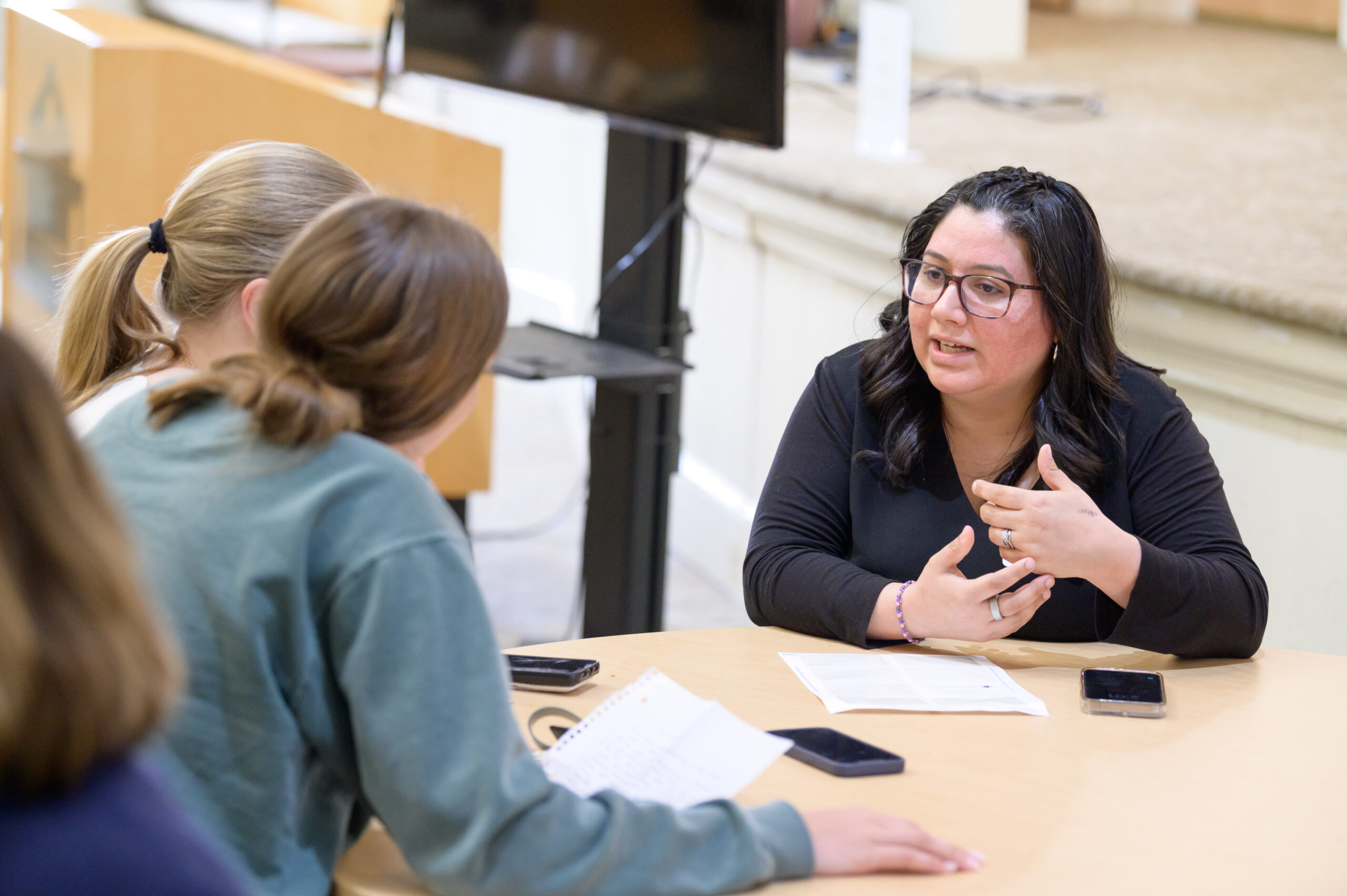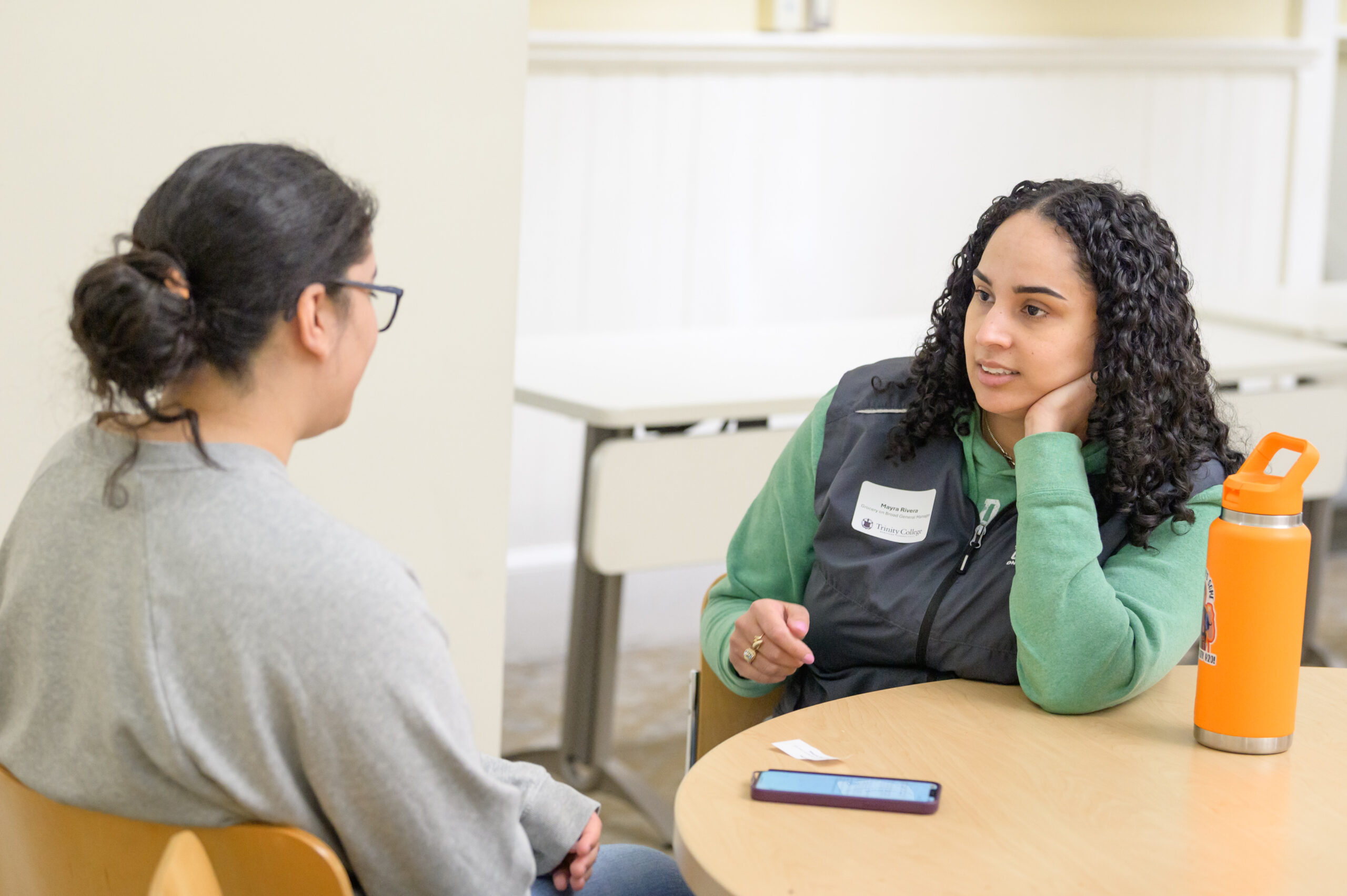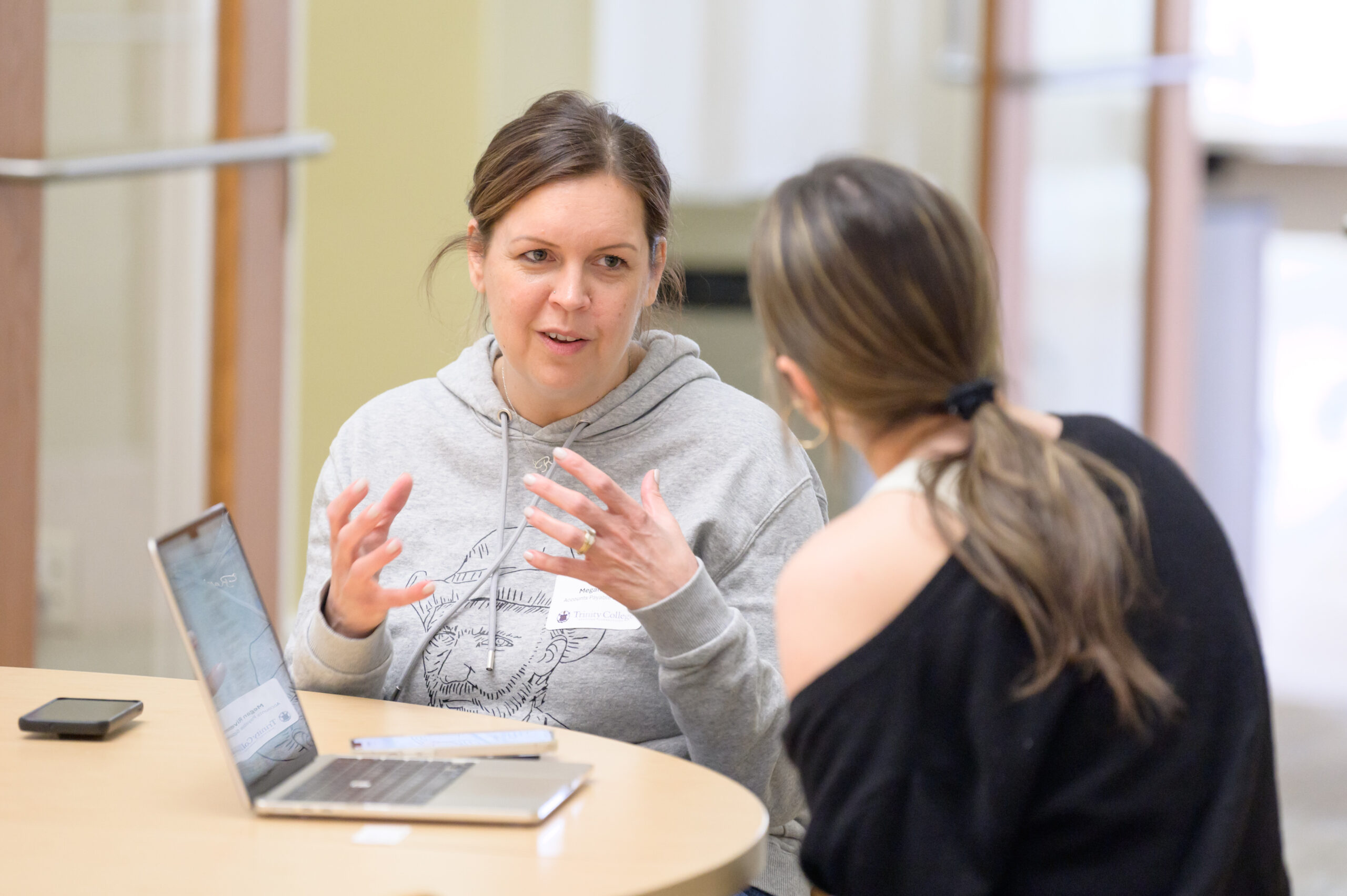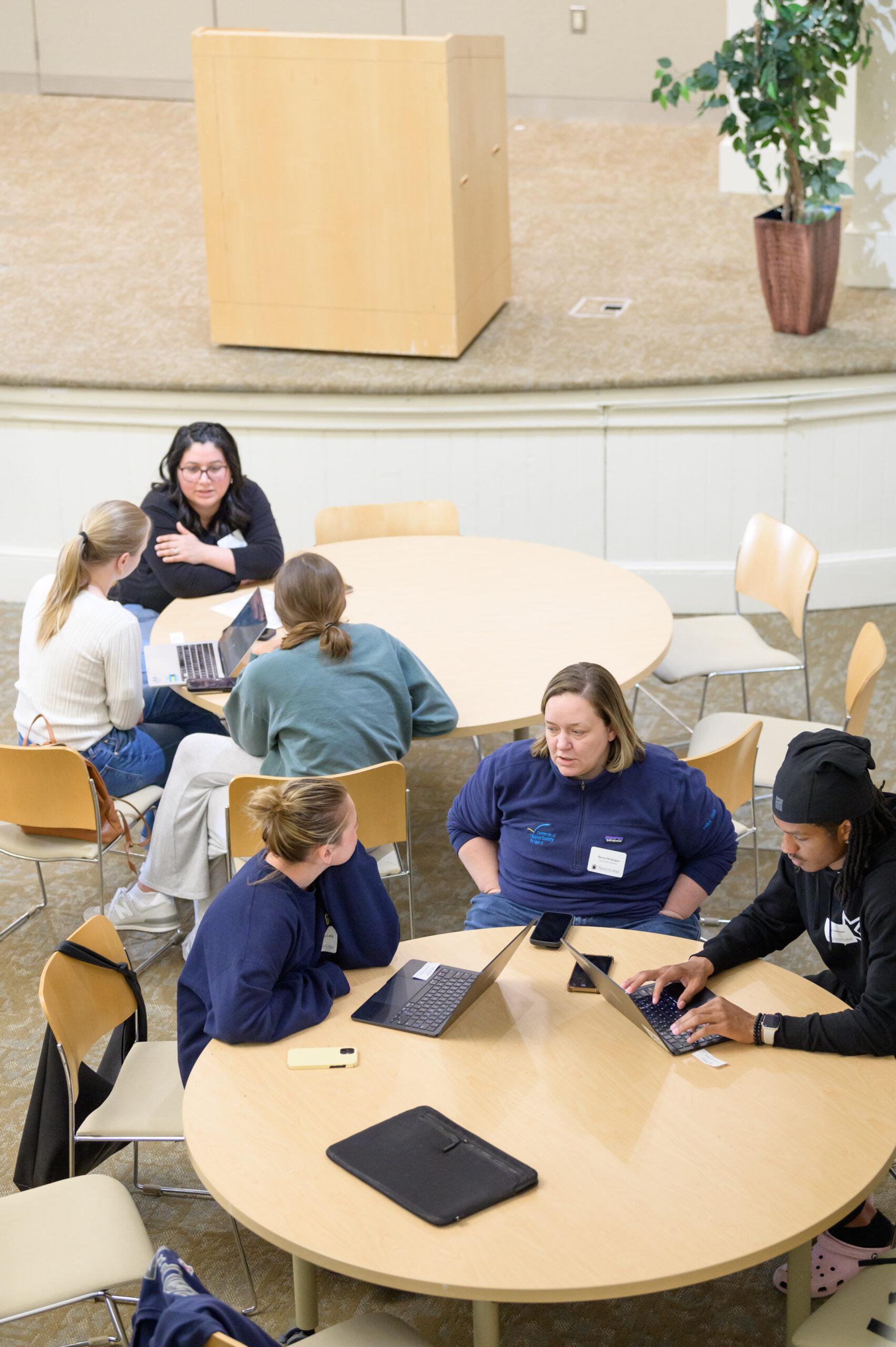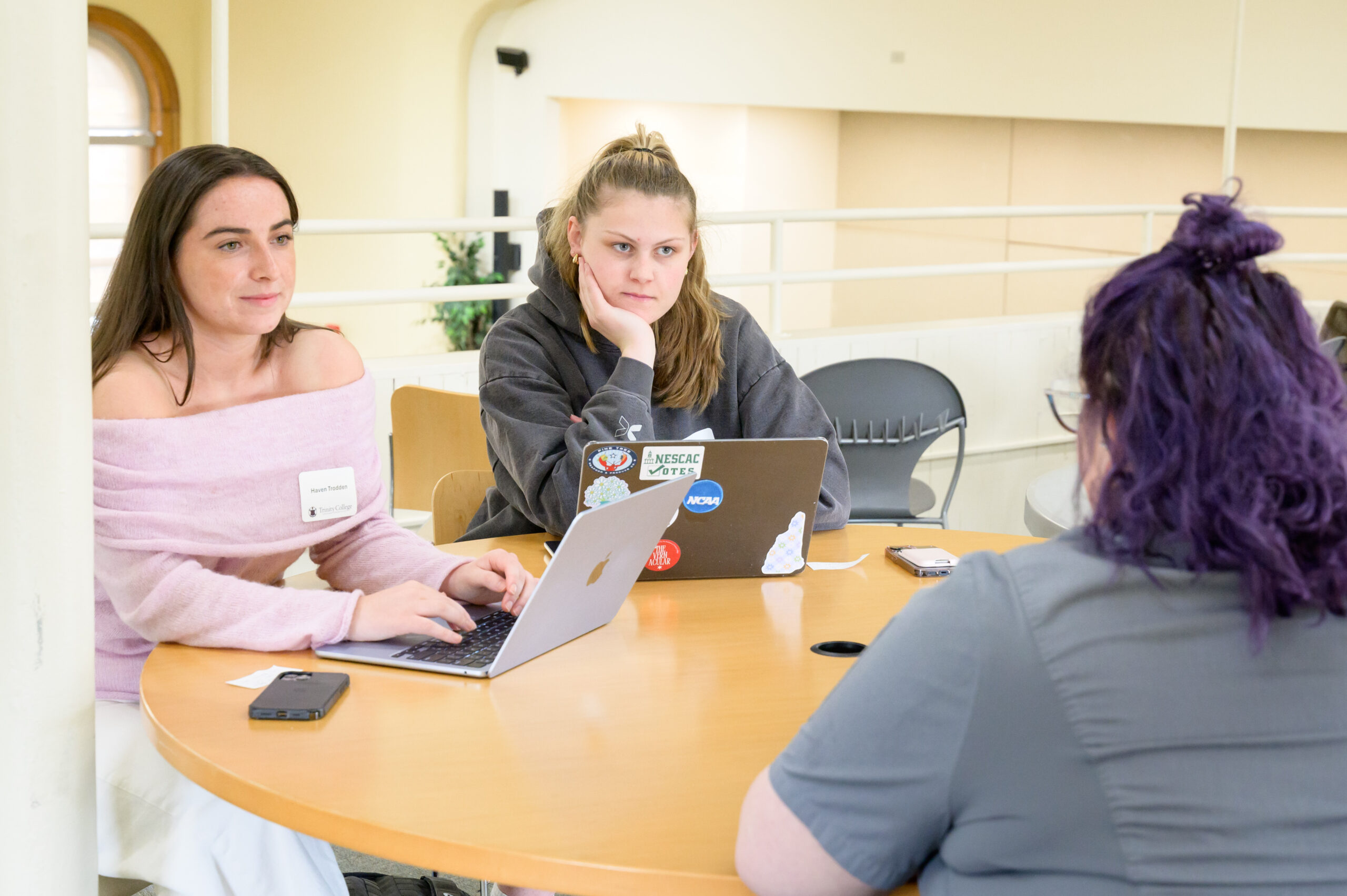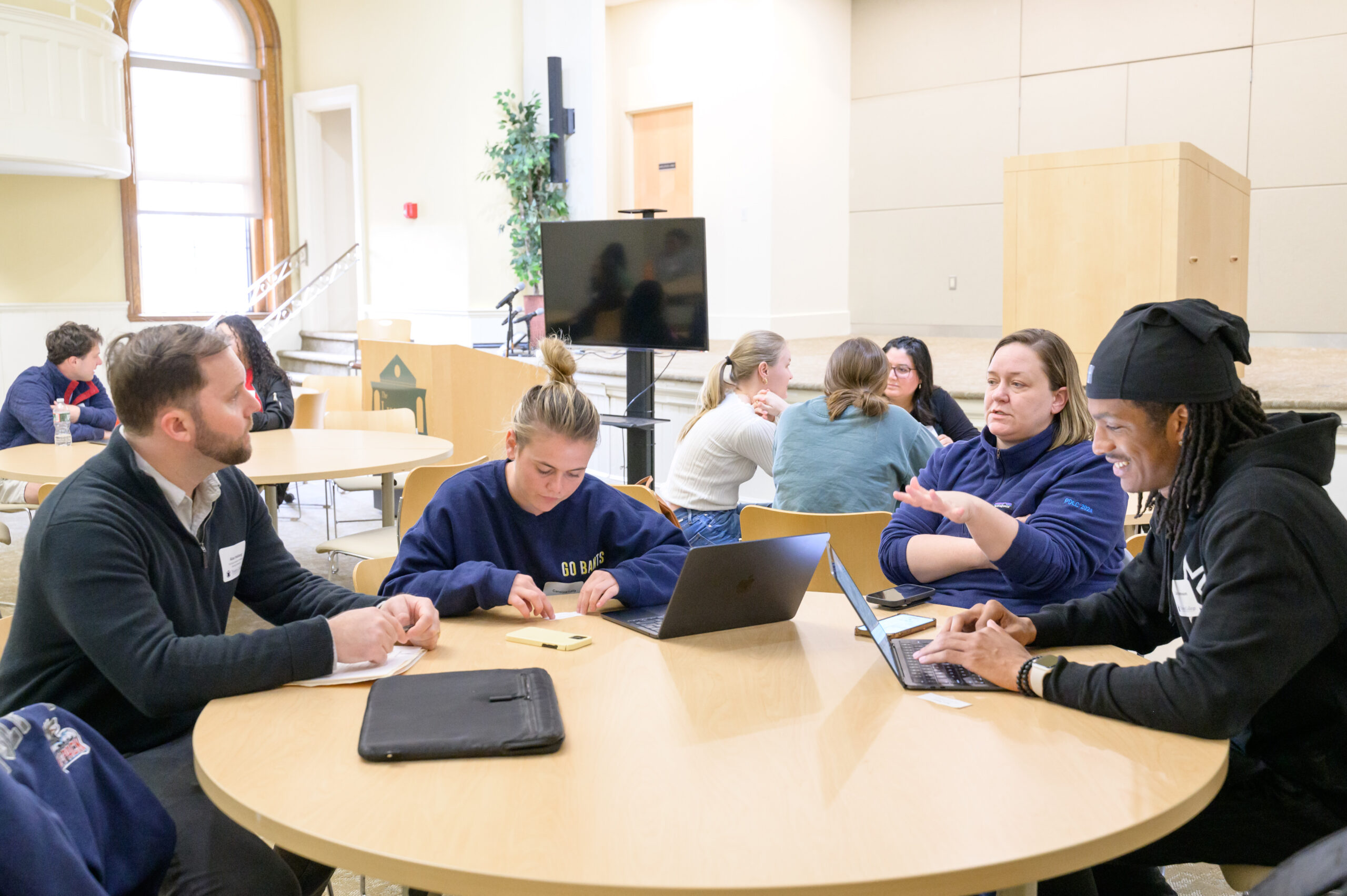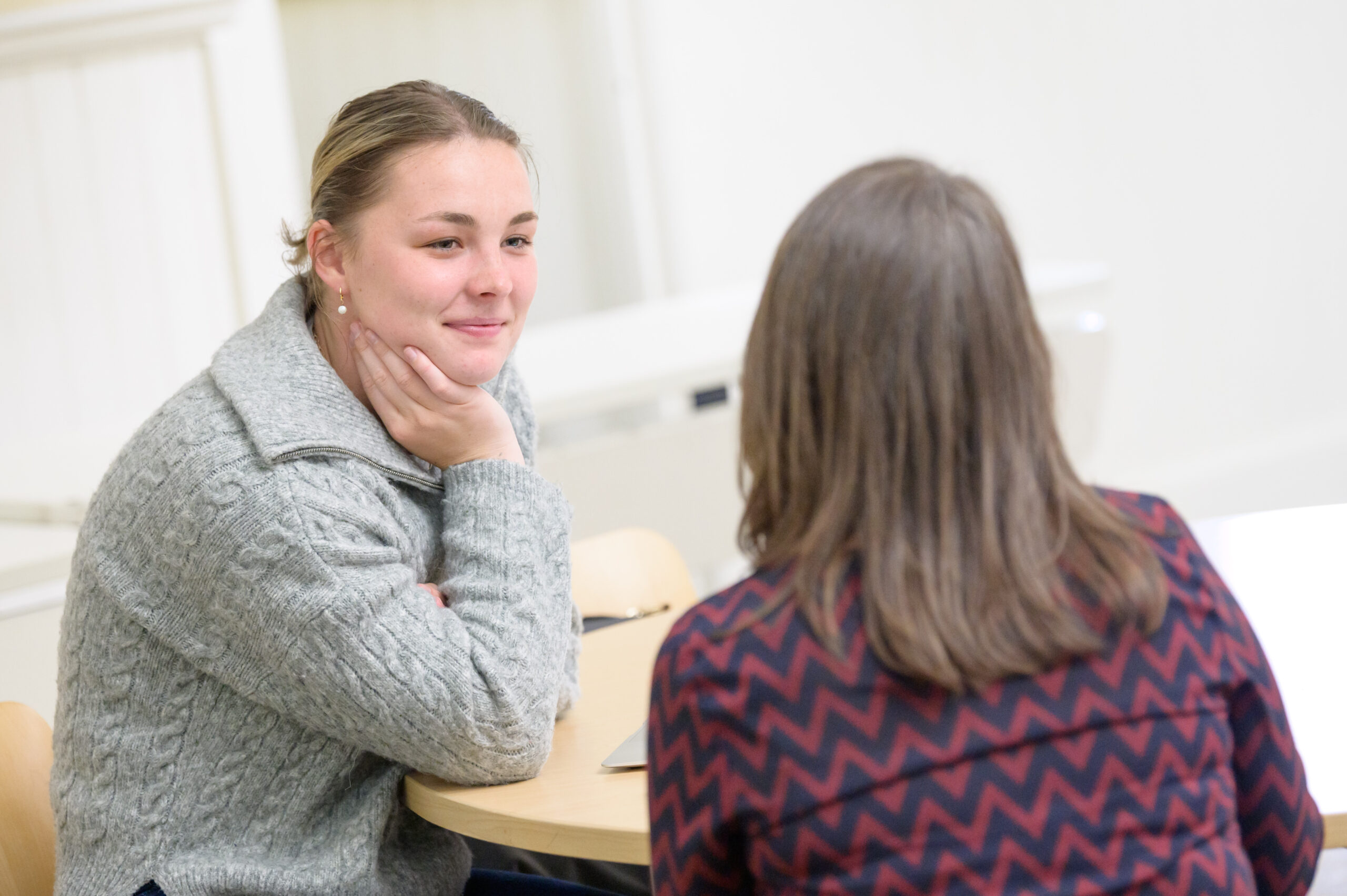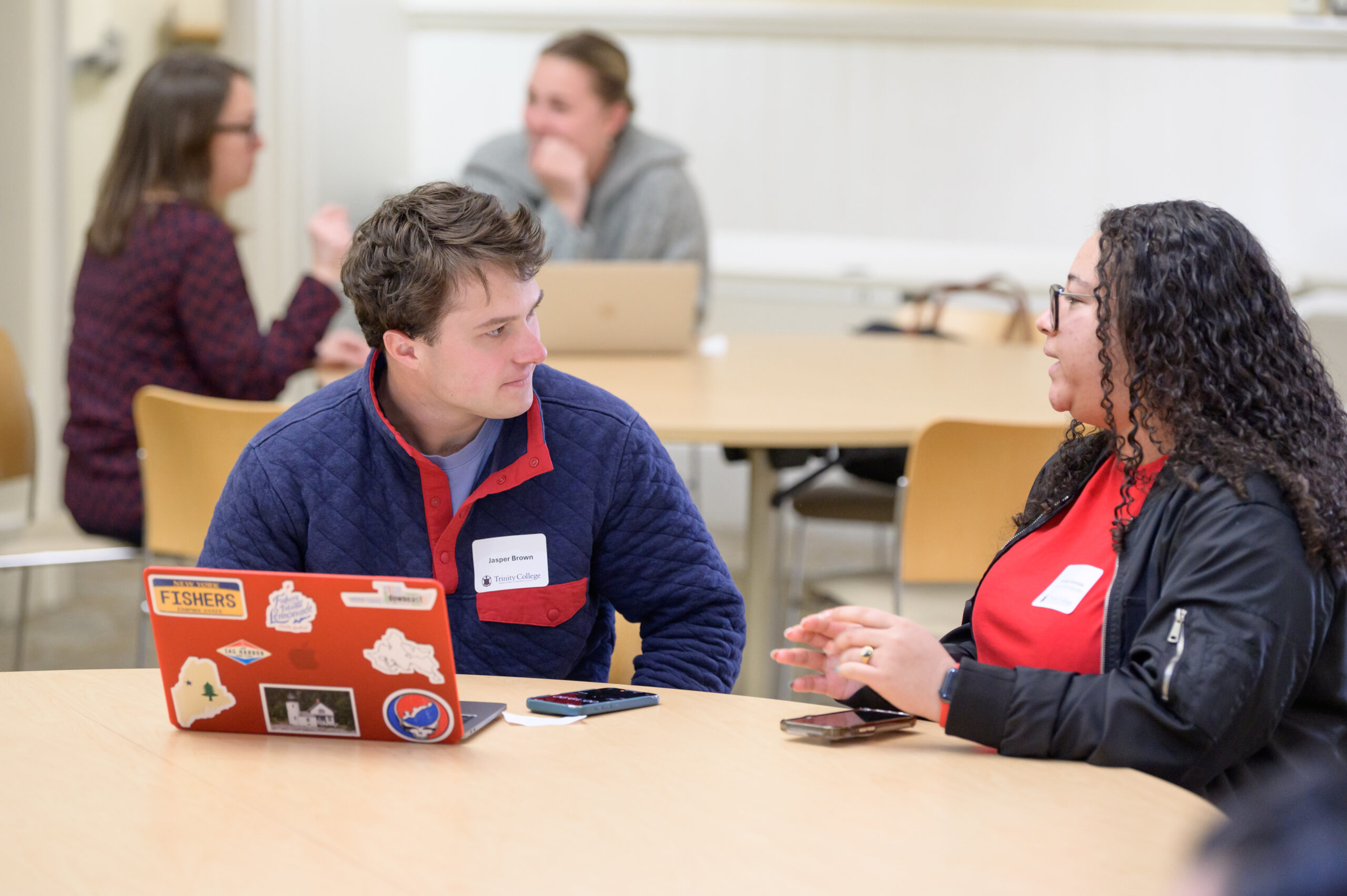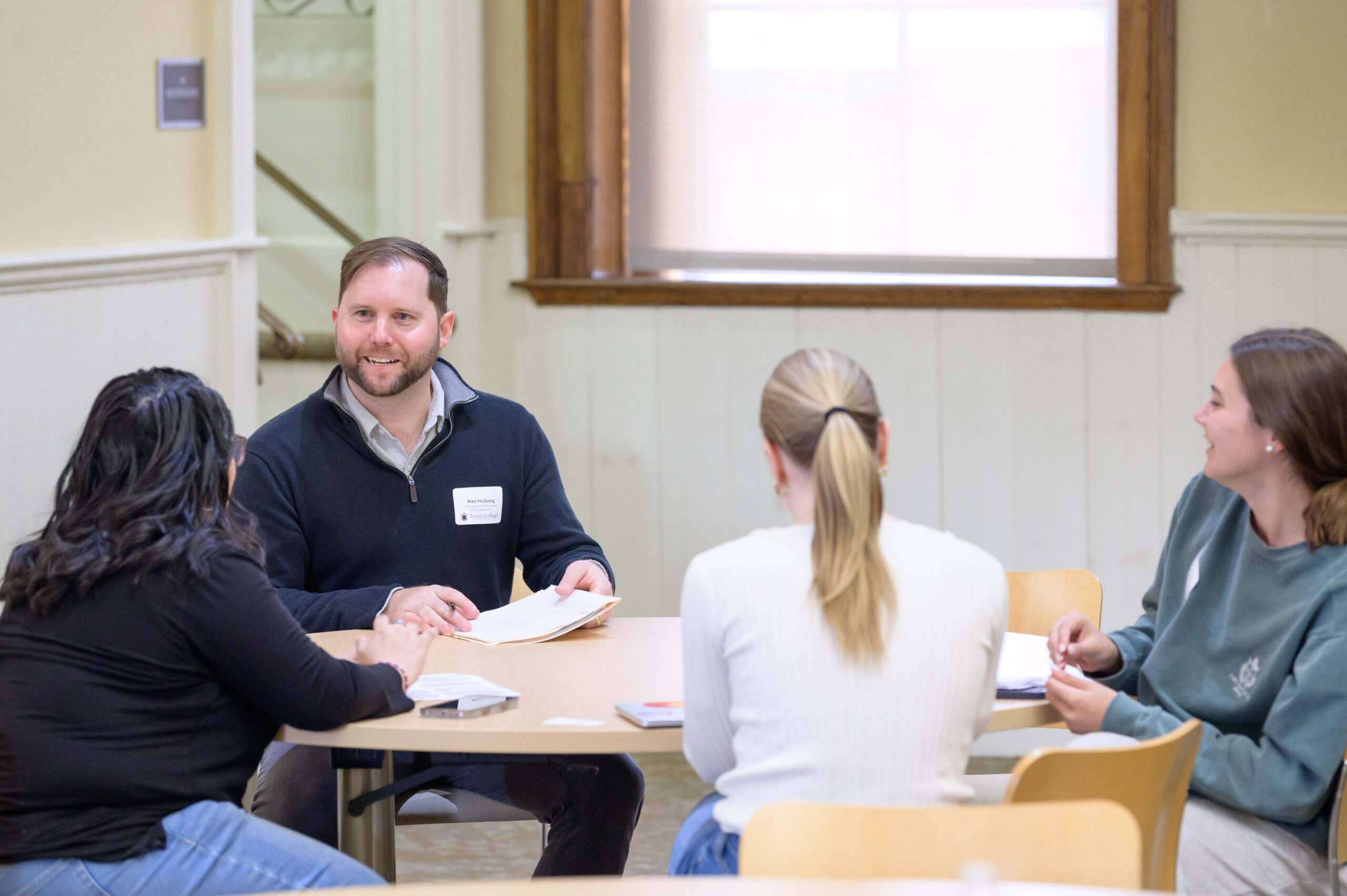‘Rhetoric of Broad Street’ Makes Connections, Tells Stories through ‘Shop the Recipe’ Cards
“The Rhetoric of Broad Street” is a Trinity College course that combines community learning and writing as it examines theories of literacy and local community membership.
After exploring competing definitions of literacy, the course turns a critical lens outward to learn about literacy’s role in community action. In one unit of the course—taught by Alexander J. Helberg, visiting assistant professor in the Allan K. Smith Center for Writing and Rhetoric—students partner with a local organization to investigate and help represent the food literacies of community members who have undergone transformations in their knowledge.
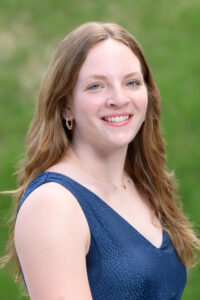
One student in the class during the spring 2025 semester was Eliza Terrell ’28, a Massachusetts resident with a prospective major in urban studies and a minor in rhetoric, writing, and media studies. At Trinity, she is a student-athlete on the women’s rowing team, a member of Faith Inspired Students at Trinity (FIST), and a student assistant working in the Registrar’s Office. Here, Terrell reflects on a unique project that brought together all that she had learned in the class:
My interest in writing has been present for my entire educational journey, but even more so when I have the opportunity to tell meaningful stories, sharing my own voice with the world.
When I was first selecting my classes for fall of my first year at Trinity, I was unfamiliar with rhetoric as a subject matter but discovered the course called “Writing for a Digital World” and was immediately drawn to it. After completing my first semester, I decided to continue with rhetoric classes—taking “The Rhetoric of Broad Street” (my second course taught by Professor Helberg)—and have since decided to pursue the subject as a minor.
In “The Rhetoric of Broad Street,” emphasis has been placed on learning about the roles that different types of literacy play in Frog Hollow, a Hartford neighborhood near campus. My peers and I have had the opportunity to further explore our community through getting to know the people and mission of Forge City Works, a social enterprise only a 15-minute walk from campus.
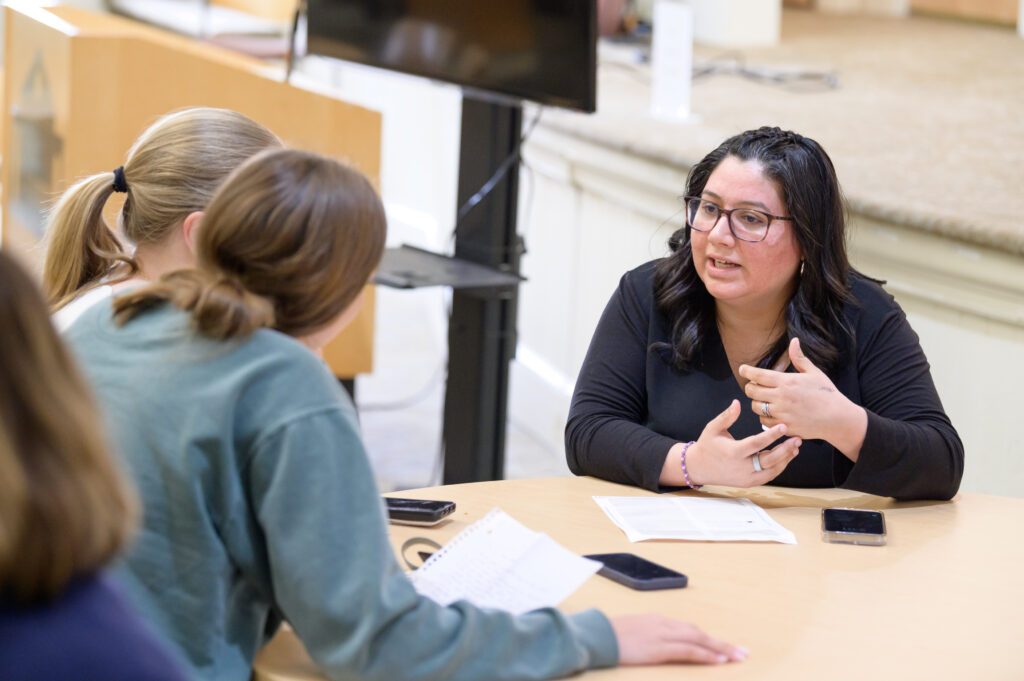
The goal of Forge City Works is to provide tools, resources, and experiences to individuals who face barriers to employment. They achieve this through job training at Forge City Works’ restaurant, Fire by Forge, and its newly established market, Grocery on Broad. In addition to working as employees of these businesses, trainees also take classes allowing them to be better prepared for the professional world. The program is created around each individual and their specific needs or what they want to focus on, ensuring each participant leaves with a stronger sense of their capabilities and a clearer path to achieving their goals.
For our final project of the course, we were tasked with creating “Shop the Recipe” cards that will be available at Grocery on Broad. The project shares some of the trainees’ and trainers’ stories while providing their own recipes for shoppers to make using ingredients bought at the market. This is a way for the community to get a sense of who they are buying their groceries from, or who is making their meals in the Fire by Forge restaurant. As a class, we wanted to highlight the strengths of employees at Forge City Works and show their journeys to where they are now.

To start this project, we each had the opportunity to meet one-on-one with an employee to interview them and hear their stories, including insights they’ve learned while being involved with Forge City Works. In class prior to this, we spent time learning about conducting effective interviews and writing starter interview questions, ultimately learning how to make productive conversation on the fly in a limited amount of time. Throughout this process, I gained a better understanding of what it would be like to go into journalism, and more specifically, journalism centered around local community programs and entities.
Being a part of this project, and the course in general, has truly propelled my educational and professional interests. Coming into Trinity this past fall, I had several ideas of what I wanted to pursue, but wasn’t interested enough in one to fully commit. Looking back on this past semester, I have realized how much I enjoy getting out into the community, learning from people of all backgrounds, and then reflecting on those experiences through writing. Because of this, I will be taking several urban studies classes next semester where I will learn more about how the structure and organization of a city affects those residing within.
At Trinity, I’m grateful for the opportunity to explore my interests across a vast array of classes and departments. This course has helped me connect my passions for journalism, visual storytelling, and community and city engagement—guiding how I can shape my time at Trinity and beyond.
“The Rhetoric of Broad Street”
“The Rhetoric of Broad Street”
Trinity students interviewed community partners from Forge City Works as part of the "Rhetoric of Broad Street" class project. Photos by Nick Caito.
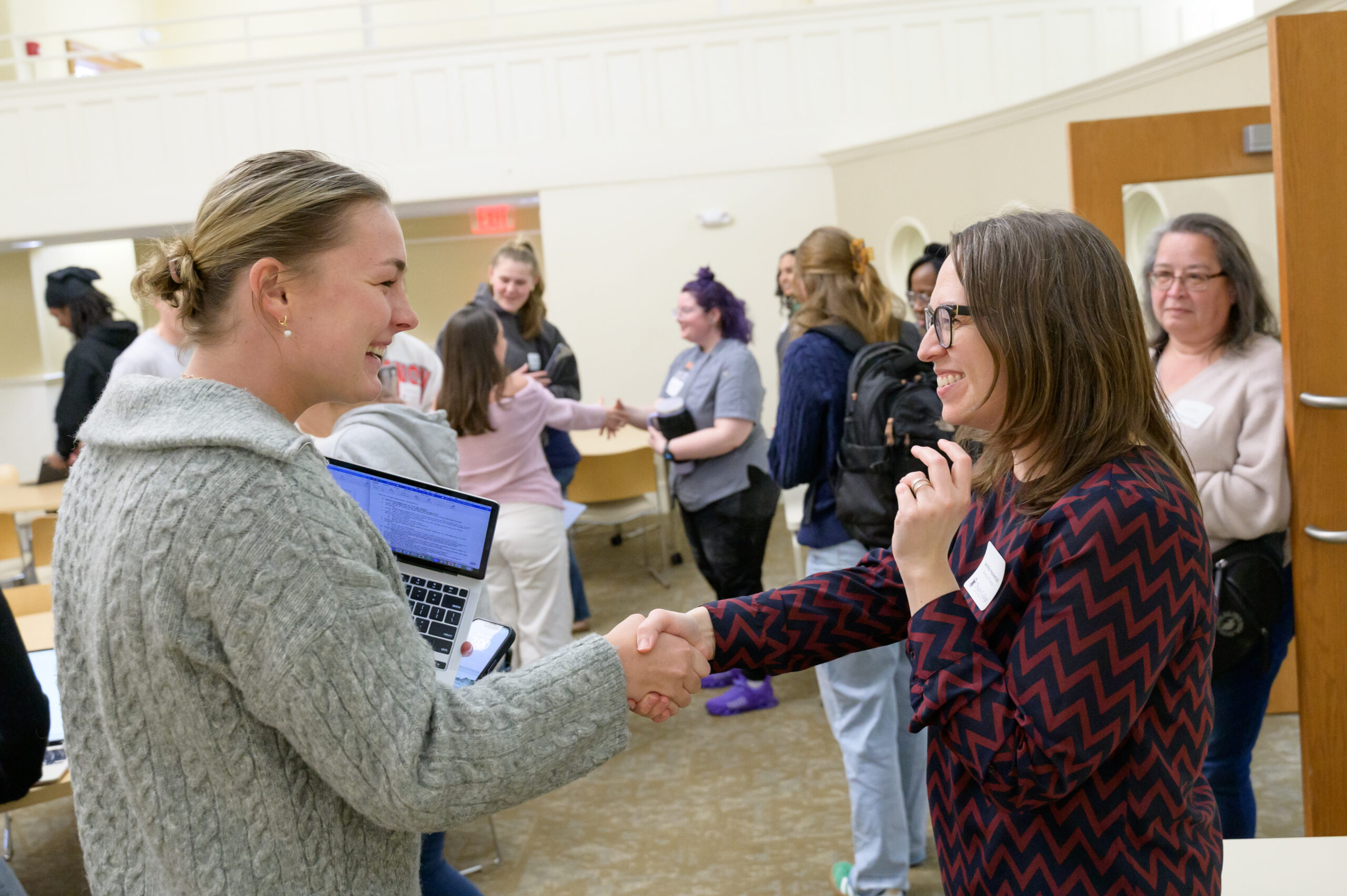
Trinity students interviewed community partners from Forge City Works as part of the "Rhetoric of Broad Street" class project. Photos by Nick Caito.
